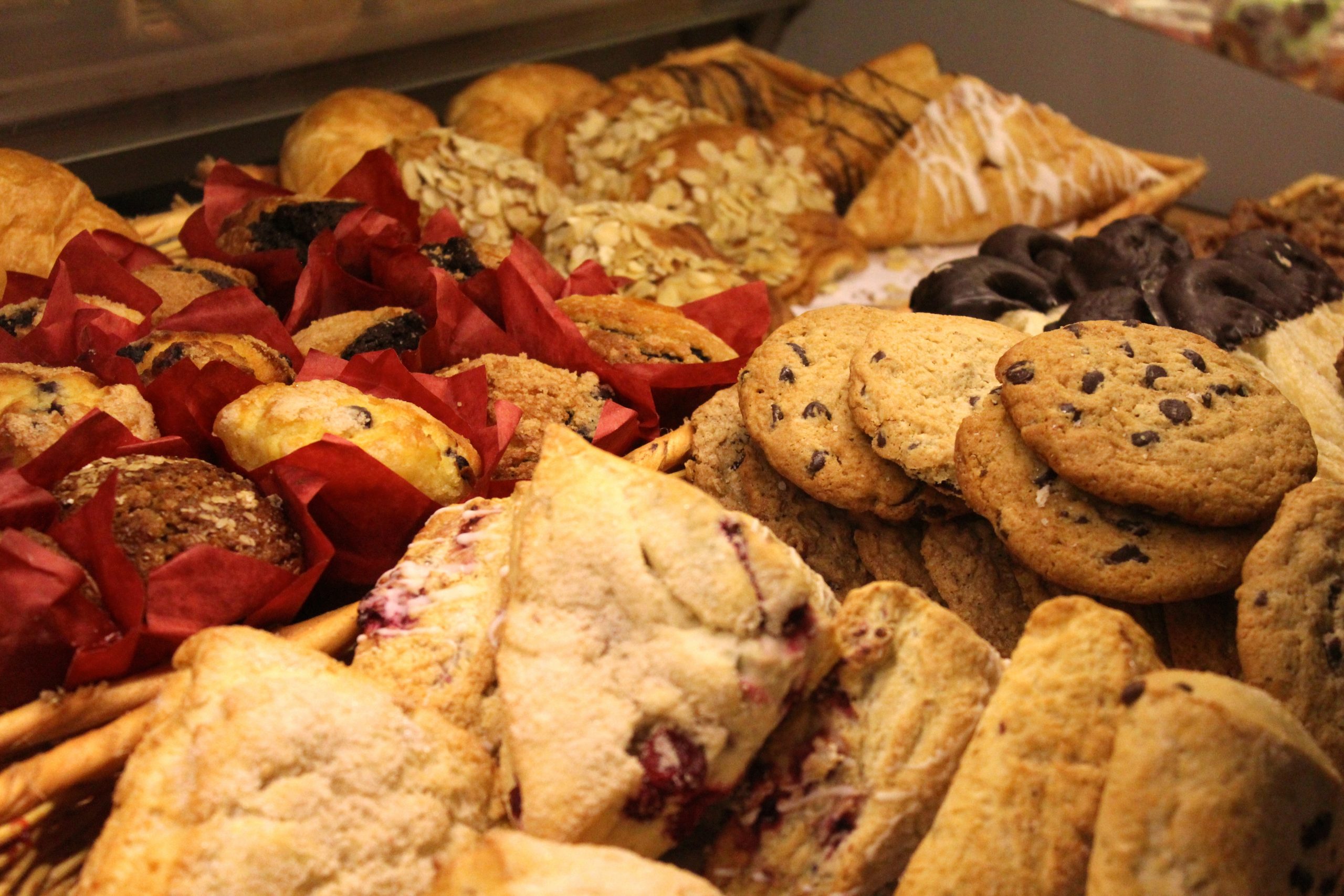
With so much time being spent at home these last few weeks, stress and feelings of isolation have really started to affect people’s emotional health. People have begun new hobbies at home to pass the time like working out, painting, and writing, but one of the most common hobbies has been baking. Consuming these breads and other pastries frequently can contribute to the development of worsening of diabetes and heart disease, two of the major risk factors for COVID-19 complications. Let’s discuss what’s wrong with comfort food, and some things you can make instead.
What’s Wrong With It?
Breads, cakes, cookies, and pies have been posted all over social media, and are being eaten more frequently than before the stay-at-home orders started. Unfortunately, these treats are loaded with simple carbohydrates, sugar, and often unhealthy fats like vegetable oil or margarine. If they are made from regular flour then they also contain large amounts of gluten. Many people have noticed they have felt worse after eating these foods, which is common with high-carbohydrate foods as they cause blood sugar highs and lows. However, gluten sensitivity is incredibly common today, and most people who have a gluten sensitivity or intolerance are not aware of it. So, consuming these foods that are full of gluten and sugar can take a toll on how you feel physically, and we need to stay as healthy as possible during this time.
Because these foods are so high in simple carbohydrates, sugar, and unhealthy fats, they can also affect blood sugar levels, heart health, cholesterol levels, and blood pressure. Sugar has been found to be a major contributor to high blood pressure, inflammation, diabetes, insulin resistance, and heart disease. With recent statistics showing that people who suffer from high blood pressure, heart disease and diabetes tend to have the most complications when they contract COVID-19, it is now more important than ever to take care of yourself and do your best to reduce your risk of developing these conditions.
Alternatives
The occasional treat can still be part of a healthy lifestyle, but choosing healthier options is important. You can try making keto versions your favorite treats, and there are endless keto recipes online. Keto recipes typically use low-carb flours like almond flour and coconut flour, and low-carb sweeteners like sugar alcohols, monkfruit, and stevia. You can find plenty of keto recipes on our Pinterest page here. You can also opt for unrefined sugars like coconut sugar and maple syrup, but remember that these are still recognized as sugars by the body and should be eaten sparingly.
Food Sensitivities
If you suspect that you may have a sensitivity to gluten, then you can try an elimination diet. Put simply, an elimination diet means you eliminate certain foods from your diet for an extended period of time to give your body a chance to rest. You should take notes of how you feel throughout this elimination period and see if you feel better when certain foods are removed from your diet. Be especially mindful of any changes in headaches or migraines, stomach pains, bloating, gas, fatigue, and acne or skin rashes as these tend to be the more common symptoms of food sensitivities.
After the elimination period, you add each food that you removed back into your diet one at a time and record any negative affects. If you notice headaches come back when you eat gluten or dairy again, then you may have a sensitivity to them. Make sure you keep a few weeks of time between each food you add back in so that you are able to know which food caused changes. You can search elimination diets online for a more detailed guide on how to try one.
Do Your Best
Try to take this time at home to create healthy habits like exercising often and eating healthy foods. However, some people are not financially able to buy healthy foods right now, so just do your best with what you have and we’ll hopefully all have a renewed interest in keeping ourselves healthy when this is over.
You can listen to our Comfort Food Uncomfortable? podcast episode here. You can also listen on our YouTube channel here.
